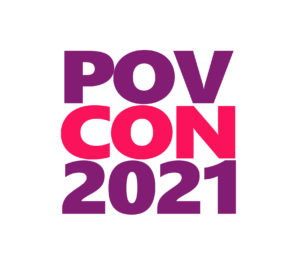THE CONFERENCE
Reinventing Resilience, Empowering Citizenry
 Poverty is a global phenomenon and getting out of it requires carefully designed strategic action and participation from everyone. Being poor increases people vulnerability to many shocks happening all throughout the world. From climate change impact to attaining peace. The United Nations have set to seventeen aspirational Global Goals hoped to be achieved in 15 years. It aims to address areas that are considered vital for sustainable living. One of the striking and perhaps the basic of all is addressing poverty. In the Philippines, the government of President Rodrigo R. Duterte through the National Economic Development Authority (NEDA) laid down the dream of Filipinos, the AmBisyon Natin 2040. It turns out that most Filipinos don’t aspire to lead rich or extravagant lives – they just dream of a simple and comfortable life. About three-fourths of Filipinos is very optimistic that by 2040, they would enjoy a comfortable standard of living while a quarter has said all Filipinos will have a prosperous and affluent life in a little more than 20 years.
Poverty is a global phenomenon and getting out of it requires carefully designed strategic action and participation from everyone. Being poor increases people vulnerability to many shocks happening all throughout the world. From climate change impact to attaining peace. The United Nations have set to seventeen aspirational Global Goals hoped to be achieved in 15 years. It aims to address areas that are considered vital for sustainable living. One of the striking and perhaps the basic of all is addressing poverty. In the Philippines, the government of President Rodrigo R. Duterte through the National Economic Development Authority (NEDA) laid down the dream of Filipinos, the AmBisyon Natin 2040. It turns out that most Filipinos don’t aspire to lead rich or extravagant lives – they just dream of a simple and comfortable life. About three-fourths of Filipinos is very optimistic that by 2040, they would enjoy a comfortable standard of living while a quarter has said all Filipinos will have a prosperous and affluent life in a little more than 20 years.
While the Philippine GDP recorded growth over the past few years, the problem with the vicious cycle of poverty in the country continues in many parts of the country. According to the reports released by Philippine Statistical Authority, poverty incidence in the country was recorded at 21.6% in 2015, which means that nearly 3 out of 10 people in the country are poor. The problem therefore of alleviating poverty in the country is of utmost importance. Collective and organized actions of different organizations from different institutions must be facilitated. More than ever, the government now has wealth to finance programs/projects to help improve societal conditions. The task of identifying what programs work and do not work will enhance the efficiency of use of the limited wealth the government has.
Academic institutions play a vital role in eradicating poverty. In many countries, the high literacy rate is highly correlated to higher social progress index. In the current report, the Philippines has improved its SPI to lower middle level (3rd of five from top) suggesting that the country is improving as a whole.
The conference aims to influence other academic institutions, embody their role in the development of the province and the country in general. It will also be a platform which will be a bridge for knowledge transfer, thus creating awareness among its stakeholders contributing to a future that guarantees sustainable development. Moreover, it envisions to create linkages and strengthen collaboration between the Academic Institutions, National Line Agencies, LGUs, and Peoples Organizations.
The conference will cater the Academe, Local Government Units in the country, NGOs, NGAs, POs, students and the general public. There will be two major tracks; the Academic Track and the LGU convergence meeting with invited key officials of the government who can help substantially in reducing poverty in the countryside. A day with local leaders and community leaders will have a separate session to share some concepts about poverty in the cultural lens. Stories about poverty and sustainable development using multi-media specifically audio-video will also be conducted.
